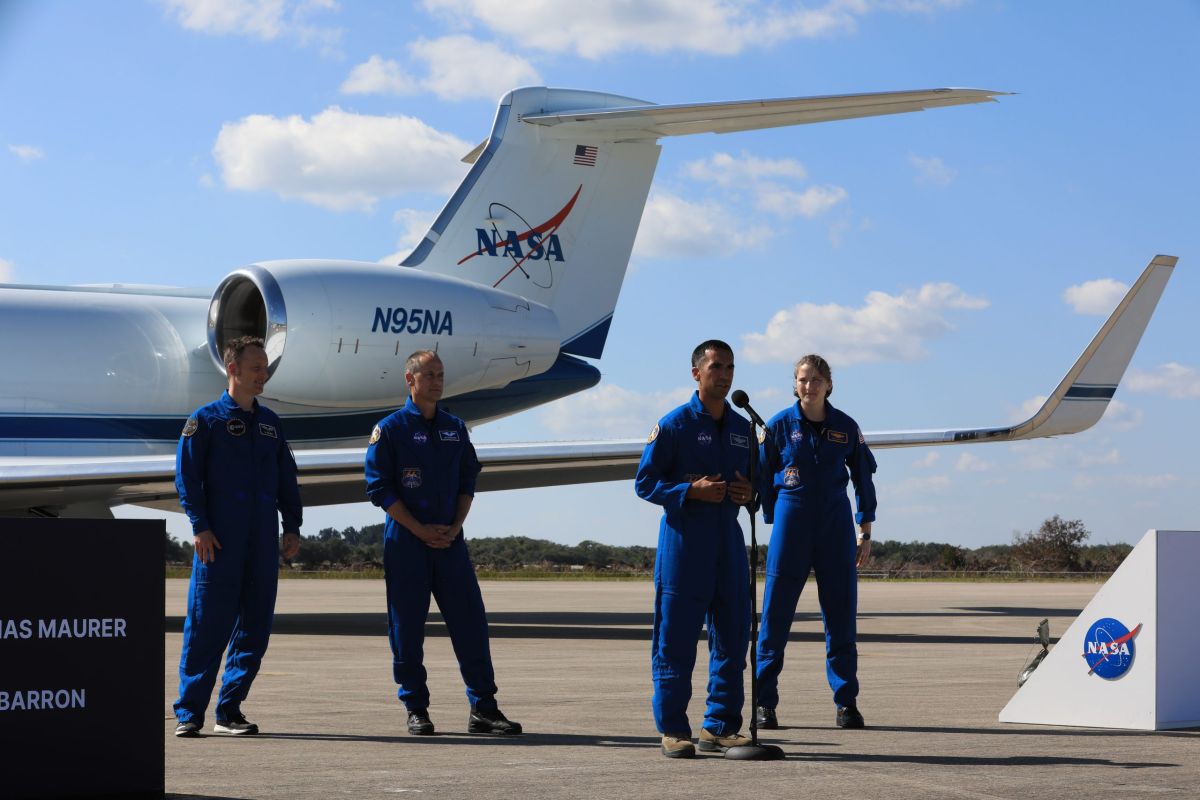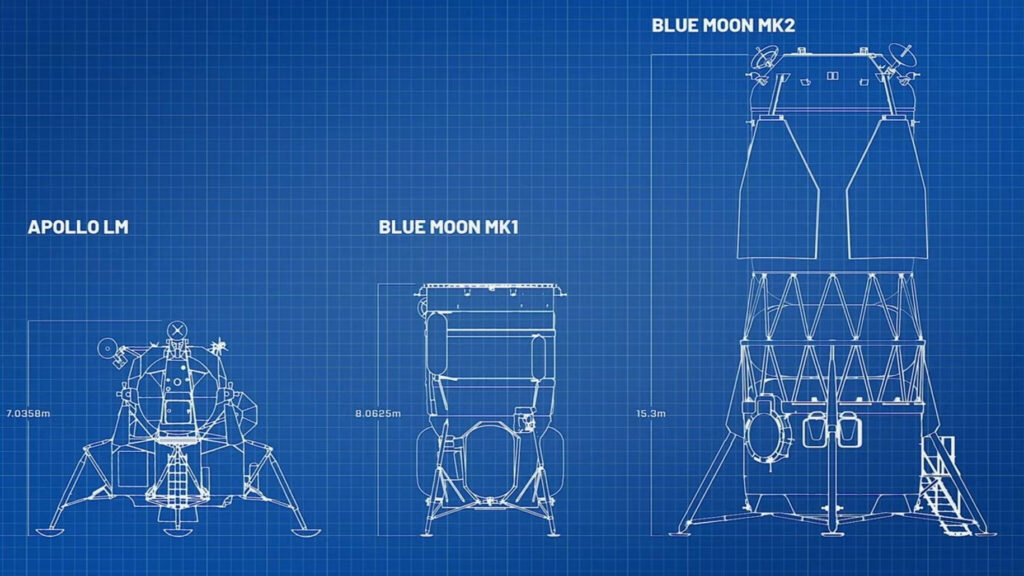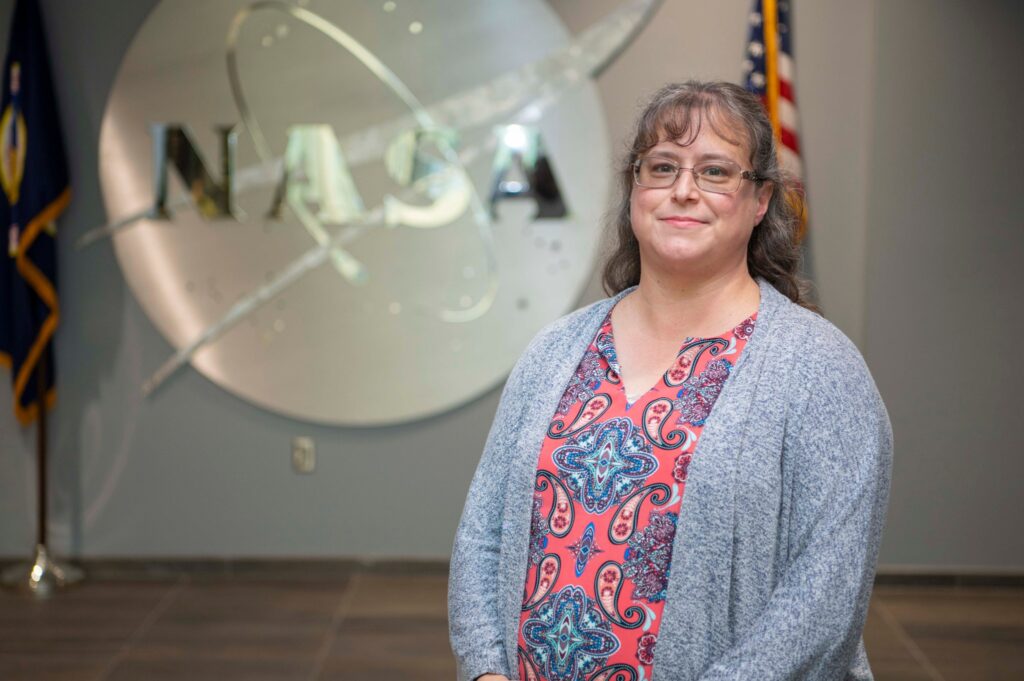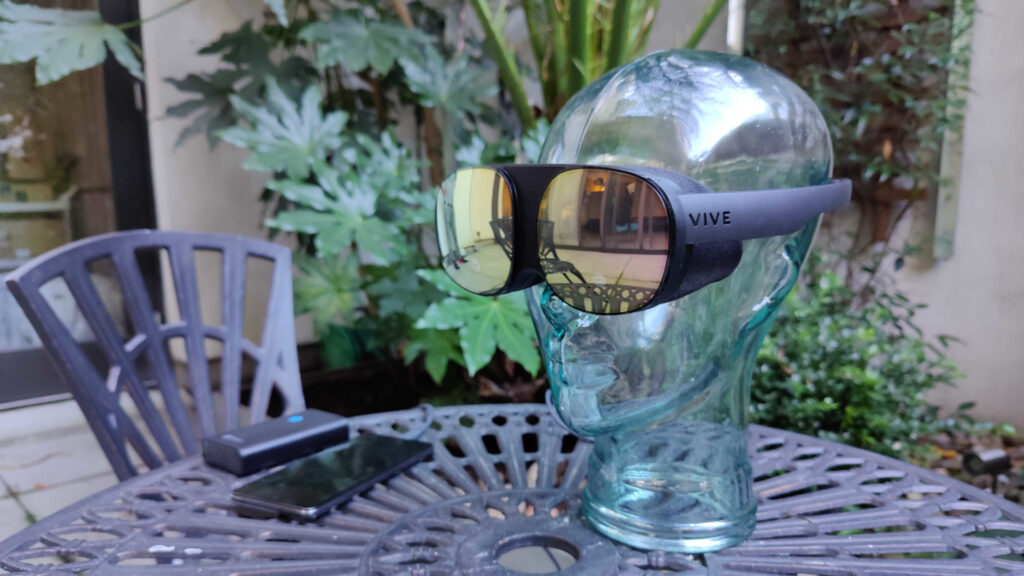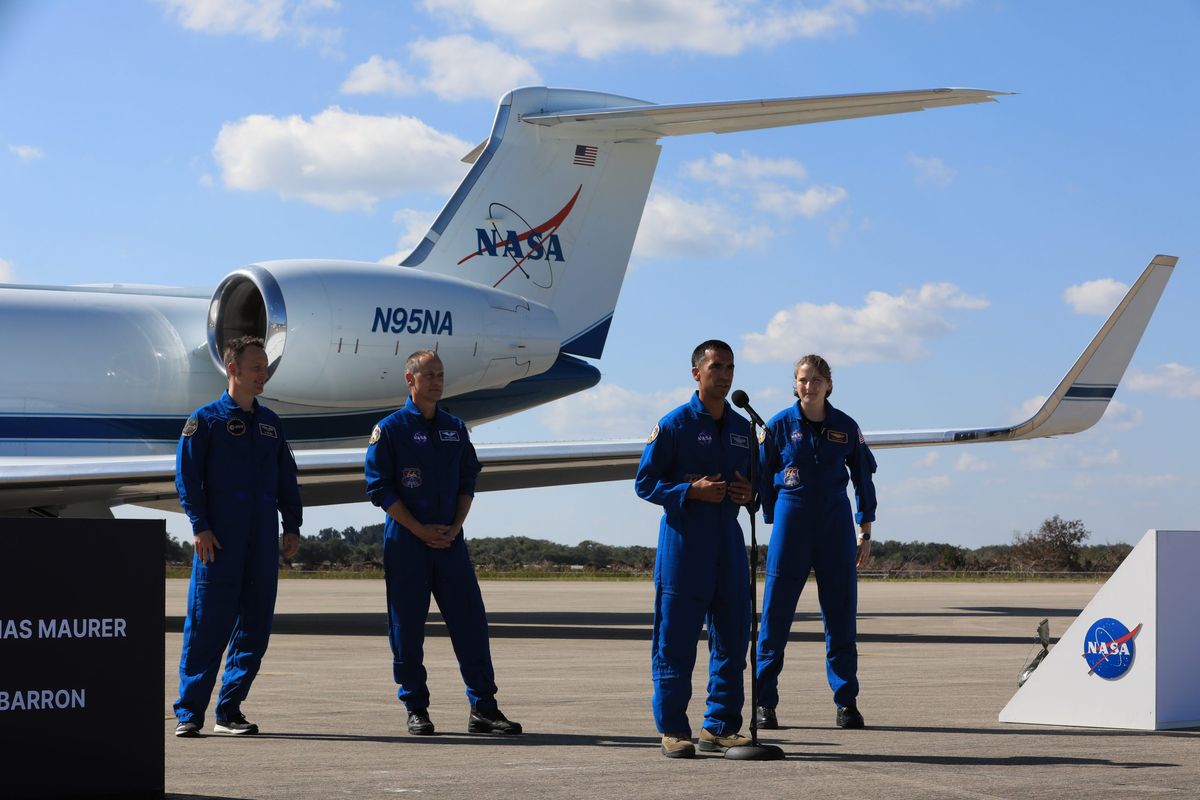
CAPE CANAVERAL, Fla. — Four astronauts were all smiles as they arrived at NASA’s Kennedy Space Center (KSC) in Florida on Tuesday afternoon (Oct. 26) ahead of SpaceX’s third operational astronaut launch for NASA.
NASA astronauts Raja Chari, Kayla Barron and Tom Marshburn, and Matthias Maurer of the European Space Agency (ESA), stepped off a NASA plane at 2:30 p.m. EDT (1830 GMT) after it parked on the former space shuttle runway here at KSC.
Their mission, called Crew-3, will see a SpaceX Falcon 9 rocket launch a Crew Dragon spacecraft on a roughly 24-hour journey to the International Space Station (ISS). Liftoff is set for 2:21 a.m. EDT (0621 GMT) on Sunday (Oct. 31) from Pad 39A here, if all goes as planned.
Live updates: SpaceX’s Crew-3 mission to the space station for NASA
“We’re absolutely thrilled to be here, as you can imagine, and quite humbled by seeing the millions of human hours that go into getting us ready and getting the vehicle ready, all for this one moment,” Marshburn said during a media event Tuesday to mark the crew’s arrival in Florida. “We couldn’t be more excited and ready to go.”
The quartet of astronauts, all of whom except Marshburn are spaceflight rookies, departed from Ellington Field near NASA’s Johnson Space Center in Houston late Tuesday morning and flew to KSC in a charter plane owned by the space agency. Upon arrival, they were greeted by NASA Assistant Administrator Bob Cabana, a former astronaut himself; KSC director Janet Petro; and Franke de Winne, Europe’s ISS program manager.
“It’s great to be home in Florida, but it’s really great to have Crew-3 here,” Cabana said. “Welcome to Kennedy Space Center, guys.”
Crew-3 is the third operational crewed mission for SpaceX and the first to carry three rookie astronauts. The crew’s capsule, named Endurance, is the third brand-new capsule to launch astronauts for NASA, and it will ride to space atop a used Falcon 9 rocket.
That rocket’s first stage, called B1067 by SpaceX, first flew in June of this year, when it lofted a different Dragon spacecraft, as part of a robotic cargo resupply mission to send research gear and supplies to the ISS.
Marshburn, Chari, Barron and Maurer will join seven others already living and working on the orbital outpost. Crew-2 astronauts Megan McArthur and Shane Kimbrough of NASA, Thomas Pesquet of ESA, and Ahikihiko Hoshide of JAXA are currently on the ISS with NASA astronaut Mark Vande Hei and Russian cosmonauts Oleg Novitsky and Pyotr Dubrov, as part of the Expedition 65 crew.
Related: Building the International Space Station (photos)
“We’re really excited to hit the deck here at KSC and to join the crew for Expedition 66 aboard the space station,” Barron said on Tuesday. “I think for all of us, especially the rookies on the flight, it still feels a little surreal, like we don’t really believe that we’re actually going to space, hopefully in the early hours of Sunday morning.”
Chari agreed. “I think for me, the thing that is most unique about this week is that we pretend to be astronauts so often — we’re always training — and now we’re going to see our vehicle and it’s actually the real deal,” he told Space.com.
Chari explained that the crew has various mockups that they spend a lot of time training on, so it will be fun to see what the actual spaceship and space station are like in comparison.
“We have a mockup at SpaceX and we have one in Houston, so we train a lot,” Chari said. “And when we see the ISS, it will be the actual ISS, so I think processing that is a pretty cool theme of this week.”
Crew-3 will not only be Barron’s first spaceflight but also be her first in-person launch overall.
“This will be the first rocket I’ve seen in person, so I’m really excited for the whole experience,” Barron told Space.com. “As the launch gets closer and we get to see our flight capsule and climb around, and then once we get to see it again this week integrated with the rocket — those are the things that I think are helping us kind of deal with reality and the fact that we’re actually gonna launch here on Sunday.”
“I think in coming to the Kennedy Space Center, you never feel closer to space than you do when you’re here,” she said. “It’s actually a really cool time for reflection on our personal journeys, on the effort that all of the amazing people who have helped us get to this point put in, but also the history of the incredible things we’re doing.”
When asked what the crew’s Halloween plans were, Marshburn said there may be a few tricks in store. “Mark Vande Hei provided us with some costumes that we might pull out here the next few days when we arrive at the space station,” he said. “We might knock on the door and see if they’ll let us in, but we’ll see.”
The crew is looking forward to spending a few days here at KSC before strapping into their capsule and blasting off into space. Once on station, they’re really excited to delve into the research investigations that they will spend the next six months conducting.
“I’m really excited about all the things we’re doing to inform future exploration missions to the moon and hopefully eventually to Mars,” Maurer said. “We’re doing a lot of work on our life-support equipment, trying to understand how to make it more reliable, make the maintenance easier, things like that to help facilitate future life-support systems on the moon and eventually on Mars.”
Related stories:
Marshburn, who is also a trained physician, said he was most looking forward to doing a series of biological experiments that will help researchers better understand the effects of spaceflight on the human body.
“I’m particularly excited for the work that we do on ourselves, because we’re guinea pigs up there,” he said. “And that excites me because of what we find out about the human body.”
Marshburn said that even though humans have been flying in space for decades, researchers are still learning how microgravity affects the body.
“Being exposed to microgravity that long, it’s like an accelerated aging process, if you will, with bone and muscle wasting that we have to counteract with the exercise,” he said. “We’ve been doing this for a couple of decades now, but we’re still adding to the knowledge.”
Follow Amy Thompson on Twitter @astrogingersnap. Follow us on Twitter @Spacedotcom or Facebook.
